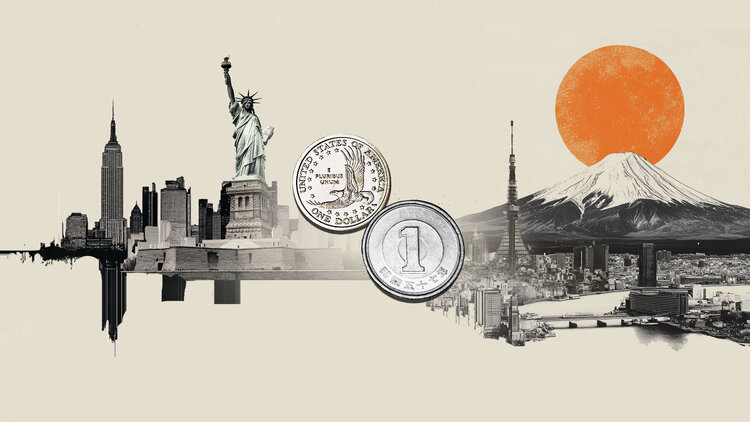Market makers play a key role in maintaining liquidity in financial markets, making them attractive to traders. Their main task is to ensure significant supply and demand for a particular asset, as well as maintaining a high level of trading activity. This guarantees fast execution of orders, which means favorable market conditions and reduced risks for market participants, writes RBC Crypto.
Market makers set bid and ask prices for trading pairs, and can also act as a buyer or seller in a transaction in the absence of a suitable counterparty.
Market makers are most often large financial institutions that can provide the necessary trading volumes, but sometimes individual traders can also perform this role. However, the requirements for them are very stringent, and, as a rule, only specialized companies offering market making as their main service can meet them. To avoid conflicts of interest, it is important for crypto traders to ensure that the exchange and the market maker are two different entities.
Examples of large market-making companies in the cryptocurrency market
Wintermute
Wintermute Trading is one of the largest market makers specializing in cryptocurrencies. The company is based in London and Singapore and makes transactions worth between $2 billion and $3 billion per day, as of October-November 2023. During the peak of the crypto market in 2021, the company’s daily turnover reached $7.5 billion. Wintermute’s venture capital division has supported more than 80 projects with investments since 2020.
GSR Markets
London-based GSR is one of the oldest and largest market makers in the cryptocurrency market. The company was founded in 2013 by former Goldman Sachs traders. GSR has historically been active in trading a wide range of crypto assets, but is focusing more on Bitcoin (BTC) and Ethereum (ETH) as of late 2023. The company is also an active venture capital investor through its subsidiary GSR Investments, which is one of the top ten most active investors in the industry.
Jump Crypto
Chicago-based Jump Trading, which invests in traditional securities, spun off its Jump Crypto division in late 2015 to invest in digital assets. However, the company has withdrawn from trading cryptocurrencies in the US due to the uncertain regulatory climate in the country. At the same time, Jump Trading, among others, agreed with BlackRock to provide market making services for a spot exchange-traded fund (ETF) for Bitcoin if approved. Jump Crypto is also an active venture investor in crypto projects.
Other well-known cryptocurrency market makers include Alphatheta, Bluesky Capital, Algoz, Acheron Trading, Auros, Kairon Labs, FalconX, Flow Traders, Portofino Technologies and other companies.
Market makers provide liquidity in cryptocurrency markets by ensuring sufficient liquidity on order books. They act as intermediaries between supply and demand for crypto assets, allowing traders to close their positions smoothly and quickly.
Market makers provide certain benefits to cryptocurrency exchanges by playing an important role in improving the overall trading efficiency of the exchange. By constantly providing bid and ask prices, they provide a high level of liquidity in the order books (called order books), which is necessary for smooth trading. By ensuring a high level of trading activity, market makers make the exchange an attractive platform for traders, thereby increasing its client base and trading volume.
Market makers also contribute to the stability of cryptocurrency markets by ensuring price consistency. They help maintain a relatively narrow bid-ask spread, which is a key indicator of high liquidity and an active trading environment on exchanges. This not only instills confidence in traders, but also protects them from possible market manipulation. In addition, by providing liquidity to assets that traditionally have low liquidity, market makers allow them to be more actively traded, thereby increasing their visibility in the market and attractiveness to investors.
How do market makers make money?
Market makers mainly generate income through the spread between the purchase price and the sale price of assets. This spread is the difference between the bid price at which traders are willing to sell the asset and the slightly lower actual price, or market price. Conversely, traders who want to buy an asset set a bid price that is slightly higher than the market price.
The difference between the price traders receive and the market price is the market maker’s profit. In addition, market makers usually charge a certain service fee from cryptocurrency exchanges, which serves as an additional source of income for them. The size of this commission can vary and is often determined by various factors such as exchange policies or the volume of trading activity.
The so-called bid-ask spread, that is, the bid-ask spread on exchange orders, is an important aspect of the market maker’s income model. A wider spread increases the market maker’s profit, but markets with a large number of traders and market makers tend to have strong competition, causing the spread to narrow. If the spread is too high, it can scare off traders and negatively affect the volume of transactions, which will lead to a decrease in the market maker’s profit.
Source: Cryptocurrency
I am an experienced journalist and writer with a career in the news industry. My focus is on covering Top News stories for World Stock Market, where I provide comprehensive analysis and commentary on markets around the world. I have expertise in writing both long-form articles and shorter pieces that deliver timely, relevant updates to readers.







